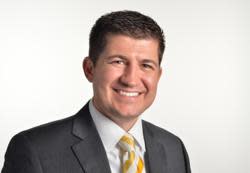US banks to savings account customers: 'Drop Dead' | Retire on Track

This headline is an overstatement, of course. It’s just a play on an infamous 1975 headline that read “Ford to New York: Drop Dead.” But sometimes with banks, it can sure feel that way. We’ll get to why in a minute.
Following my column about Silicon Valley Bank, I get a lot of questions about how banks make money. Most people understand how retailers and many other goods and services providers operate. But banks? That’s a bit of a mystery.
The same goes for insurance companies. But I don’t have the time and space to explain that business. Read Warren Buffett’s annual letters to shareholders; he does a better job of it than I ever could.
But banks essentially take your deposits and use those funds to earn interest at a higher rate. They do this two ways: by loaning money and by investing in securities.
Banks also make money the old-fashioned way: charging fees for various services. Common ones are fees for overdrafts, wire transfers, excessive transactions, and using out-of-network ATMs.
How do you know whether a bank is healthy? You have earnings-per-share history, of course, but other metrics can help. For example, a common one is the net interest margin, or NIM. The NIM essentially indicates the profitability of its lending activities by comparing what it generates from loans and mortgages with what it pays people who have savings accounts or certificates of deposit. For 2023, by the way, analysts have been cutting their expectations of NIM for the industry.
That’s where it gets interesting in today’s environment. Over the past year, bank deposit rates have remained low at below 0.5%. Meanwhile, money market accounts, which might limit transactions or have minimum account balances, recently were offering yields exceeding 4.4%. That’s a big difference.
There are a few reasons for this. One is that, in general, bank reserves are actually high. This is the result of quantitative easing (QE) that began during the financial crisis. Under QE, the Federal Reserve purchased Treasury securities and mortgage-backed securities from banks. As a result, bank reserves – the supply of money – increased.
A side effect of QE is that banks no longer need to compete as much for your deposits. This is more the case at large, national banks than regional ones.
Banks are also cash heavy from the increase in savings because of the pandemic. We weren’t traveling or spending money on entertainment, and we received stimulus checks as well as various forms of pandemic aid.
Another reason is the result of the slow but predictable movement of funds from low-yielding deposit accounts to accounts earning higher rates.
This could be changing. People are starting to take money out of savings to pay for ordinary expenses, and they’re moving money from savings accounts investments that earn higher rates. Matthew Plosser of the New York Fed said that at some point, banks will need to offer more competitive deposit rates.
Until then, however, your bank is probably acting like it doesn’t want your money.
Evan R. Guido is the founder of Aksala Wealth Advisors LLC, a 2018 Forbes Next-Gen Advisors List Member, and Financial Professional at Avantax Investment ServicesSM. Evan heads a team of retirement transition strategists for clients who consider themselves the “Millionaire Next Door.” He can be reached at 941-500-5122 or eguido@aksalawealth.com. Read more of his insights at heraldtribune.com/business. Securities offered through Avantax Investment ServicesSM, member FINRA, SIPC. Investment advisory services offered through Avantax Advisory ServicesSM, insurance services offered through an Avantax-affiliated insurance agency. 6260 Lake Osprey Drive, Lakewood Ranch, FL 34240.
This article originally appeared on Sarasota Herald-Tribune: EVAN GUIDO: Why are banks acting like they don't need your money?
